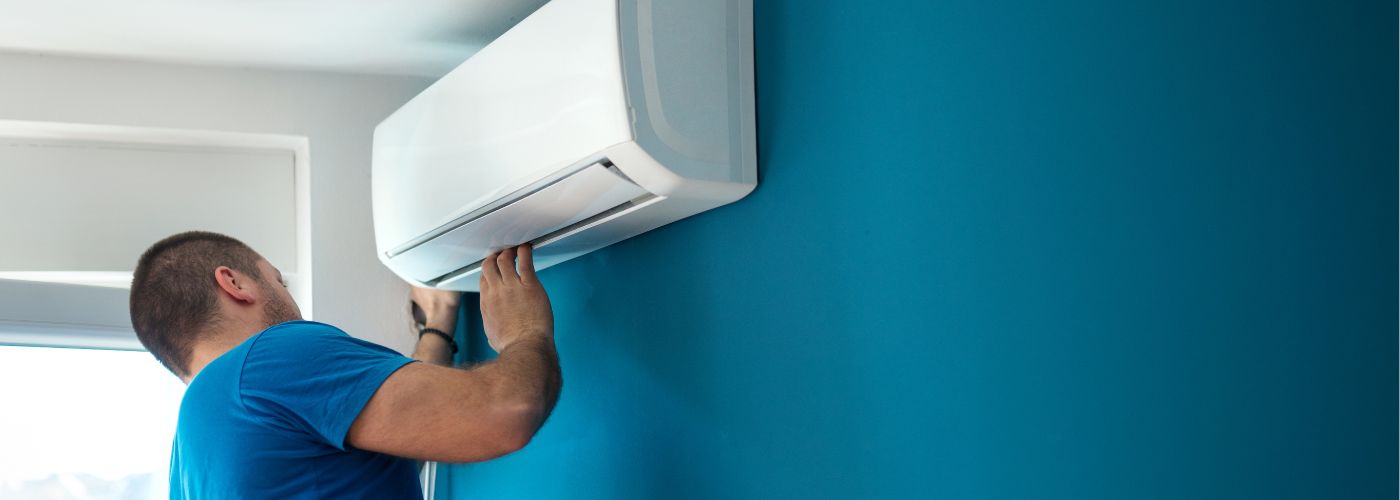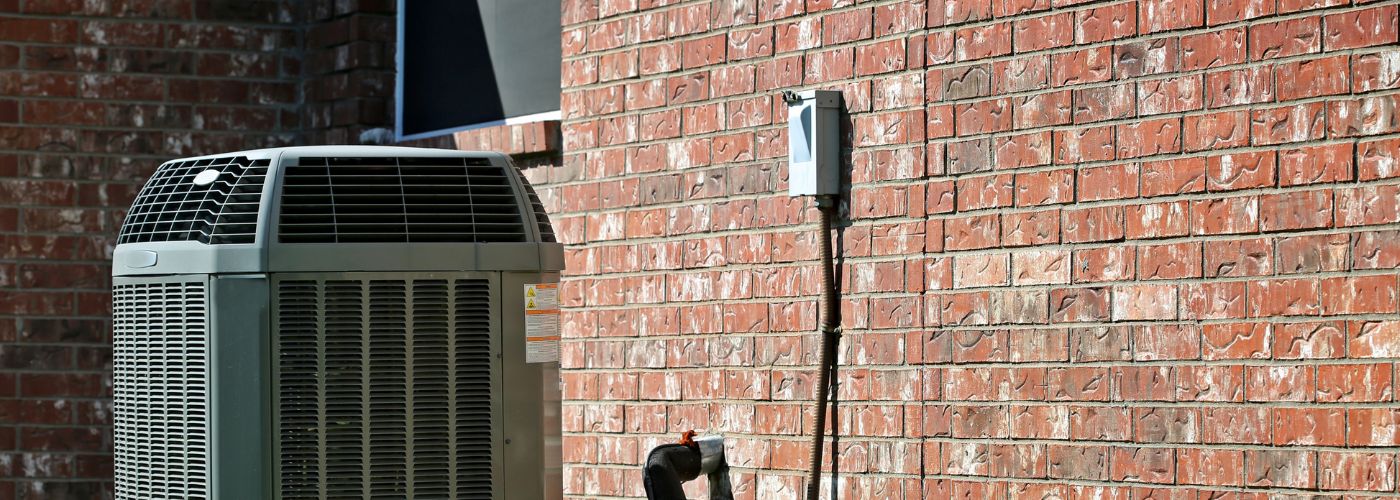If you’ve noticed your air conditioner turning on and off frequently in short bursts, it might be signaling a common issue known as an AC short cycle.
In this blog post, we’ll explore what short cycling is, why it happens, warning signs to look out for, and effective strategies to prevent or resolve this concern. Let’s dive into the world of AC short cycle warning signs with a blend of informative insights and friendly advice.
What Is Short Cycling AC?

Short cycling is a phenomenon that occurs when your air conditioning system fails to complete a full and efficient cooling cycle. Instead of the typical operation where the AC runs continuously for a reasonable duration to reach and maintain the desired temperature, short cycling appears as abrupt and frequent on-off cycles, often occurring within a matter of minutes. In addition to causing discomfort in your home, this may be a sign that AC repair is urgently needed.
Imagine this: your AC kicks in, cools the air for a brief period, and then abruptly shuts off before completing the full cooling cycle. Shortly after, it starts up again, repeating this quick and inefficient cycle. This not only disrupts the consistency of your indoor climate but also places undue stress on the various components of your cooling system.
This pattern of rapid cycling is more than just an inconvenience—it’s a potential red flag for underlying issues within your AC system. Beyond affecting your comfort levels, short cycling can lead to increased energy consumption, higher utility bills, and, if left unaddressed, potential malfunctions that may require costly repairs.
Why Is My AC Short Cycling?

Understanding the reasons behind short cycling is the first step in addressing this issue. Several factors can contribute to your AC unit short cycling:
Oversized AC Unit: An air conditioner that is too large for the space it’s cooling may cool the area quickly but will then shut off abruptly, leading to short cycling.
Low Refrigerant Levels: Insufficient refrigerant levels can impact the cooling process, causing the system to turn off prematurely. This may result from a leak or improper refrigerant charge.
Thermostat Issues: A malfunctioning thermostat might incorrectly gauge the temperature, causing the AC to cycle on and off when it’s not necessary.
Dirty or Clogged Air Filters: Restricted airflow due to dirty or clogged air filters can lead to overheating, prompting the AC to shut down before completing a full cycle.
Faulty Capacitors or Relays: Electrical components like capacitors or relays can degrade over time, affecting the proper functioning of the cooling system and leading to short cycling.
While AC issues can be complex and frustrating, a qualified HVAC contractor will be able to help you identify the problem and get you the repairs your system needs to function at its best!
How Do I Stop My AC From Short Cycling?
If you’re experiencing short cycling, here are actionable steps to address and prevent it:
Right-Size Your AC Unit: If your AC unit is oversized for your space, consult with a professional to determine the correct size for optimal cooling efficiency.
Check and Replace Air Filters: Regularly check and replace air filters to ensure proper airflow. This simple maintenance task can significantly improve your AC’s performance.
Inspect and Clean the Condenser Unit: Keep the outdoor condenser unit free from debris, vegetation, and dirt. A clean condenser unit ensures efficient heat exchange.
Address Refrigerant Issues: If you suspect low refrigerant levels, have a qualified technician inspect your system for leaks and recharge the refrigerant if necessary.
Test Thermostat Functionality: Verify that your thermostat is functioning correctly. If there are issues, consider calibrating or replacing it to ensure accurate temperature readings.
Inspect Capacitors and Relays: Have a professional technician inspect electrical components like capacitors and relays for signs of wear or malfunction. Replace any faulty components to ensure proper operation.
Consider Installing a Compressor Time Delay: A compressor time delay prevents the AC unit from restarting immediately after shutting off. This delay allows the system to balance pressures, reducing the likelihood of short cycling.
What Causes Short Cycling AC?
The occurrence of short cycling in your air conditioning system can be attributed to various factors, each playing a role in disrupting the normal cooling cycle. Identifying these root causes is pivotal in implementing effective solutions to rectify the issue.
An air conditioner that is oversized for the space it’s intended to cool can lead to quick temperature drops. As a result, the thermostat may signal the system to shut off prematurely, causing short cycling.
Inadequate refrigerant levels due to a leak or improper charge can hinder the heat absorption process. This can prompt the AC to shut down abruptly before completing a full cooling cycle. A malfunctioning thermostat may also misread the indoor temperature, leading to incorrect cooling cycle durations. This can cause the AC to cycle on and off rapidly.
Restricted airflow due to dirty or clogged air filters can result in overheating of the evaporator coils. To prevent damage, the AC may shut down quickly, contributing to short cycling.
Electrical components like capacitors or relays can wear out over time, affecting the proper functioning of the cooling system. Malfunctioning electrical parts can lead to erratic cycling patterns.
The outdoor condenser unit requires proper airflow to dissipate heat. If it’s blocked by debris, vegetation, or dirt, the AC may overheat, triggering short cycling as a protective measure.
Understanding these potential causes allows you to troubleshoot and address the specific issues contributing to short cycling in your air conditioning system. It’s advisable to consult with a qualified HVAC professional to conduct a comprehensive inspection, identify the root cause accurately, and implement tailored solutions to restore your AC to optimal performance.
Addressing short cycling promptly not only improves your comfort but also helps prolong the life of your AC unit. By identifying warning signs, understanding the causes, and implementing practical solutions, you can keep your cooling system operating efficiently.
If in doubt or if issues persist, don’t hesitate to consult with a professional HVAC technician for a thorough assessment and tailored solutions. Your home’s comfort is worth the investment in a well-functioning air conditioning system!
